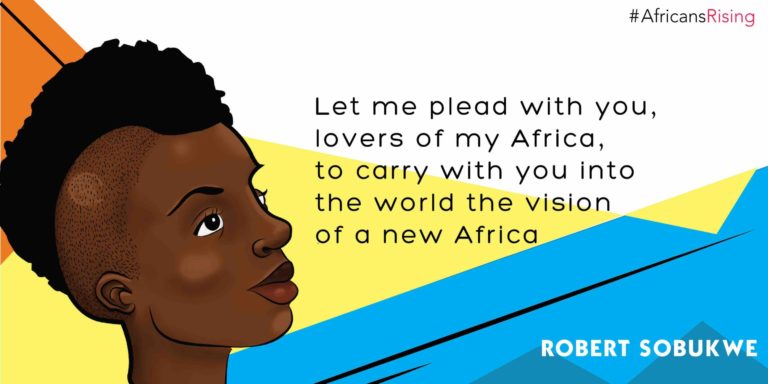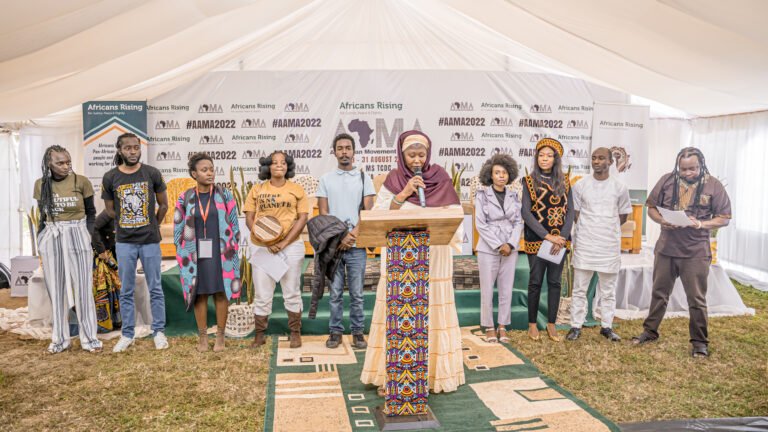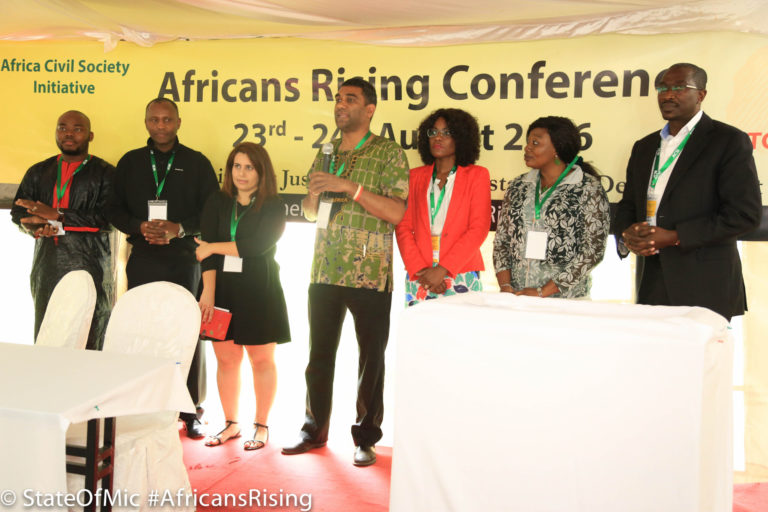During the Partos Innovation Festival on October 11th, The Spindle and The Broker launched their newest publication ‘Joining Forces, Sharing Power: Civil Society Collaborations for the Future’.
Joining forces, sharing power is a follow-up to the 2017 publication Activism, artivism, and beyond: inspiring initiatives of civic power. This new report showcases the numerous ways in which civil society has managed to bridge gaps, overcome differences, and work together in creative and transformative ways, with likely, as well as unlikely, partners.
Partos and The Spindle joined forces with The Broker to create the book. With the support of CIVICUS and contributions from Africans Rising, they have selected examples of collaborations that are particularly inspiring or innovative. At the Partos Innovation Festival Yannicke Goris, Knowledge Broker and author of the new publication handed the first copy to keynote speaker Tulika Srivastava, who she had interviewed for the book.
The question central to the book is: how can we make better use of energy, creativity, resources, and competencies organisations and individuals want to share in their strive for a better world? By joining forces and sharing power opportunities arise for inclusive and sustainable development. Money is no longer the dominant factor in this: it’s about equal collaborations and connections between people, organisations and communities.
Over the course of six chapters, readers are made familiar with the most creative and transformative ways of cooperation taking place today. For many civil society organizations, traditional donor funds still constitute an indispensable source of income. Without the support of external funding, the life expectancy of many – if not most – organizations is dramatically low. To avoid these dangerous levels of dependency, CSOs are developing creative strategies to be more self-reliant. Increasingly, we are working together with actors that are more grounded in the communities they serve rather than with traditional governments and multilateral institutions and devising collaborative methods that differ significantly from donor-recipient constructions.
In chapter 4, the creators of this publication take a closer look at our goal to be supported primarily by resources raised by and within the African continent and the African Diaspora. Our movement’s sustainability strategy has a double purpose. First, by relying on our African constituency for funding, the movement avoids becoming dependent on external donors. More importantly, through its resource strategy, Africans Rising fosters a sense of community and (co-)ownership among our community.
Have we interested you in the new publication?
You can download ‘Joining forces, sharing power’ here, or send an email to yannicke@thebrokeronline.eu for a hardcopy.






